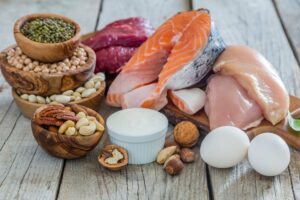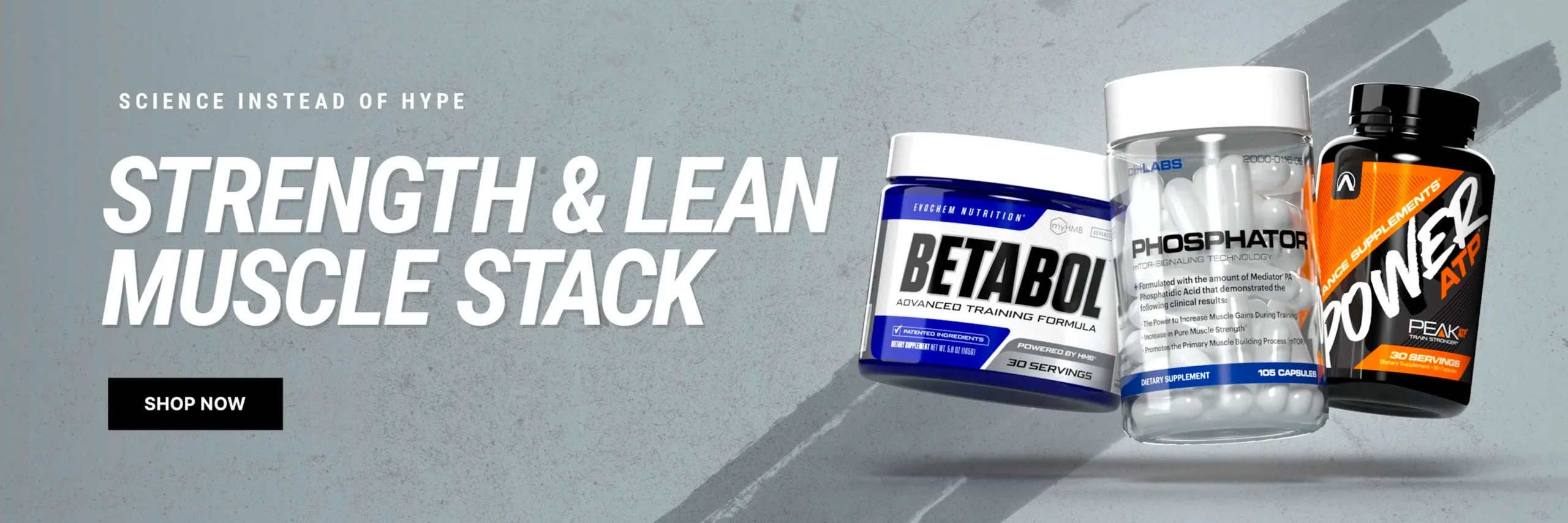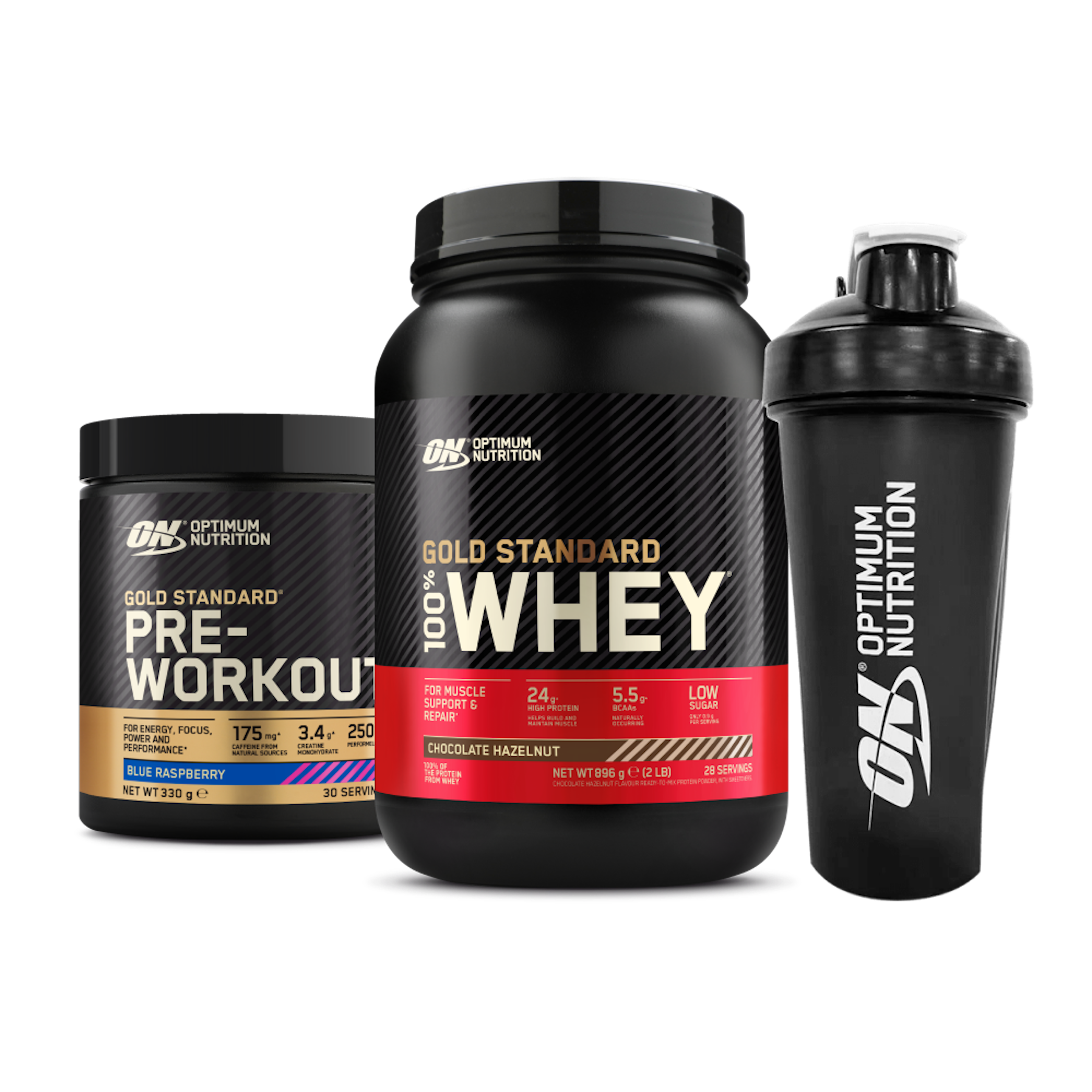Fat and carbohydrates go through their ups and downs: demonized one day, lionized another. Protein, however, is consistently lauded for its ability to help all kinds of people build muscle, repair tissue, and assisting in vital bodily functions like blood clotting and the immune response. But there’s so much more to the story (read: get ready to load your Instacart up with tempeh and Greek yogurt).
What exactly is protein and why is it so important?
Protein is one of the three key macronutrients alongside fats and carbohydrates. “It is particularly important because it does most of the work in our cells, and is required for the structure and function of our tissues, organs, and glands,” says Bill Cole, MD, a cellular health specialist and functional medicine expert. “Protein is vital for building, repairing, and oxygenating the body as well as playing a key role in making enzymes that digest our food. It’s also an important part of the production and regulation of our hormones.”
The basic building blocks of proteins are amino acids. “There are 22 different amino acids, nine of which are known as essential amino acids. This means they must be consumed in the food we eat because they can’t be manufactured by the body.”
How much protein do we actually need to avoid protein deficiency?
While it’s true that the body needs a constant supply of protein, there are particular times of growth—such as childhood, adolescence, pregnancy, and in older age (given the increased rate of muscle breakdown)—that may require extra. It’s important to keep in mind that protein needs depend primarily on individual variations like gender, weight, health, and activity level.
That said, in general, the recommended daily allowance (RDA) is determined using the following equation: 0.36 grams of protein multiplied by pounds of body weight. As an example, a 130-pound person needs roughly 47 grams of protein per day. It’s key to note that research suggests that we should spread our protein intake across the day rather than having lots of protein at once. “This makes it easier for our muscles to optimize their protein synthesis,” says Tamara Willner, ANutr, a registered nutritionist at Second Nature.
4 Healthy Protein Sources
It’s also important to eat protein from a variety of sources to ensure you consume all amino acids. Marie Spano, MS, RD, CSCS, CSSD, sports dietitian, and a consultant for Egglife Foods, highlights the following whole foods because they supply essential amino acids and a variety of micronutrients:
1. Greek Yogurt
“Greek yogurt contains anywhere from 12 to 18 grams per six-ounce cup. Greek yogurt is a great option because it’s largely casein, which is slower to digest and keeps you full for a longer period of time. Plus it’s packed with bone-building calcium and often beneficial bacteria—live and active cultures known as probiotics—as well.”
2. Tempeh
“Tempeh has 18 grams of protein in a three-ounce serving. Made from soy, this fermented food is packed with plant-based protein. And thanks to the fermentation process, it’s a good source of beneficial bacteria too.”
3. Salmon
“There are 17 grams of protein in a three-ounce serving of salmon. Salmon is not only loaded with protein but is also a great source of omega-3 fatty acids EPA and DHA. These omega-3 fatty acids support heart, eye, brain, and prenatal health.”
4. Dark Turkey Meat
“Dark turkey meat packs 24 grams of protein in a three-ounce serving. Turkey is under-consumed and gets little recognition, despite the fact that dark turkey meat is a great source of protein. Plus it also contains more iron than white turkey meat, and is a great source of several vitamins as well as zinc and selenium.”
$5.95 Ground Shipping On Any Purchase In The US! – Shop Now!
Find the top sources of vegan and vegetarian protein according to an RD in this video:
So, what are the signals that your body could benefit from eating more protein-rich foods? Here, 11 protein deficiency symptoms
True protein deficiency is rare in the United States given food availability. In fact, all experts consulted for this story agreed that Americans are typically meeting (and even exceeding) their daily recommended intake of protein. “An exception would be a protein deficiency caused by malabsorption syndrome,” says Dr. Cole. “Malabsorption syndrome is where a person is consuming enough protein, but not digesting and absorbing it well. This is often caused by a deficiency of digestive enzymes like pepsin and a deficiency of hydrochloric acid (HCL) in the stomach, as both are necessary for the digestion of protein. Age and/or poor diets that are high in processed foods are common causes. In addition, the rampant use of antacids in modern society will also lower HCL levels, compromising protein digestion.”
If you are concerned you may be deficient, Susan Greeley, RD, a registered dietitian nutritionist and chef-instructor at the Institute of Culinary Education, highlights 11 protein deficiency symptoms that may be your body’s way of telling you that you could use more protein in your diet.
1. Slow Wound Healing
“Protein is required for wound healing—and when lacking, wound healing is compromised, collagen formation is impaired, and wounds can also worsen.”
2. Weak Immune System, Such As Frequent Infections
“It is well known that protein malnutrition impairs immune function. The mechanism for this has to do with the roles that amino acids have in forming antibodies—aka proteins—and regulating immune responses.”
3. Muscle Loss (Sarcopenia)
“This is typically age-related but can occur at any age due to malnutrition, eating disorders, disease, and so on. In general, we lose muscle mass as we age. Protein requirements for adults increase after age 70 and exercise is also needed to help maintain muscle.”
4. Weakened Bone Strength
“This can lead to more fractures, particularly in the elderly. Collagen formation, support, and repair at various stages of life are impaired by protein deficiency, as is muscle mass, and the two work together!”
5. Hair Loss
“This may be related to the iron status, which is a common micronutrient deficiency resulting from a lack of protein foods in the diet—particularly meat and legumes.”
6. Brittle Nails And Dry Skin
“Typically seen in more severe protein deficiency, but not uncommon in elderly as well.”
7. Increased Hunger And Food Cravings
“When not consuming enough protein, it is common to have cravings as the body triggers appetite in order to get what it needs.”
8. Fatigue And Weakness
“Protein is a macronutrient, meaning it supplies energy to the body. When a person is a protein and calorie-restricted, weakness and fatigue often are the first signs.”
9. Mood Changes
“Most people have heard of at least one amino acid, tryptophan, as it is a precursor to the neurotransmitter, serotonin. Other amino acids are also required to make neurotransmitters. When deprived of protein, the supply of amino acids is limited and/or lacking and negatively impacts our brain function by limiting the body’s ability to synthesize neurotransmitters.”
10. Poor Growth (In Children)
“Structural functions—like building muscles, forming collagen, bones, teeth, and so on—and all other functions of proteins are severely compromised in protein deficiency in children.”
11. Poor Sleep Or Insomnia
“Again related to the amino acid tryptophan—studies have shown that increasing tryptophan intake improved sleep in adults with sleep disturbances.”

For More News And Daily Updates, Follow IFBNewsfeed.Org on Facebook, Twitter, and Instagram. Comment, Like, And Share With Everyone Who May Need To Be Updated With The Most Recent Fitness/Bodybuilding/Powerlifting And CrossFit News.






